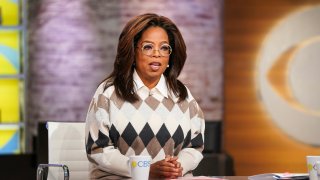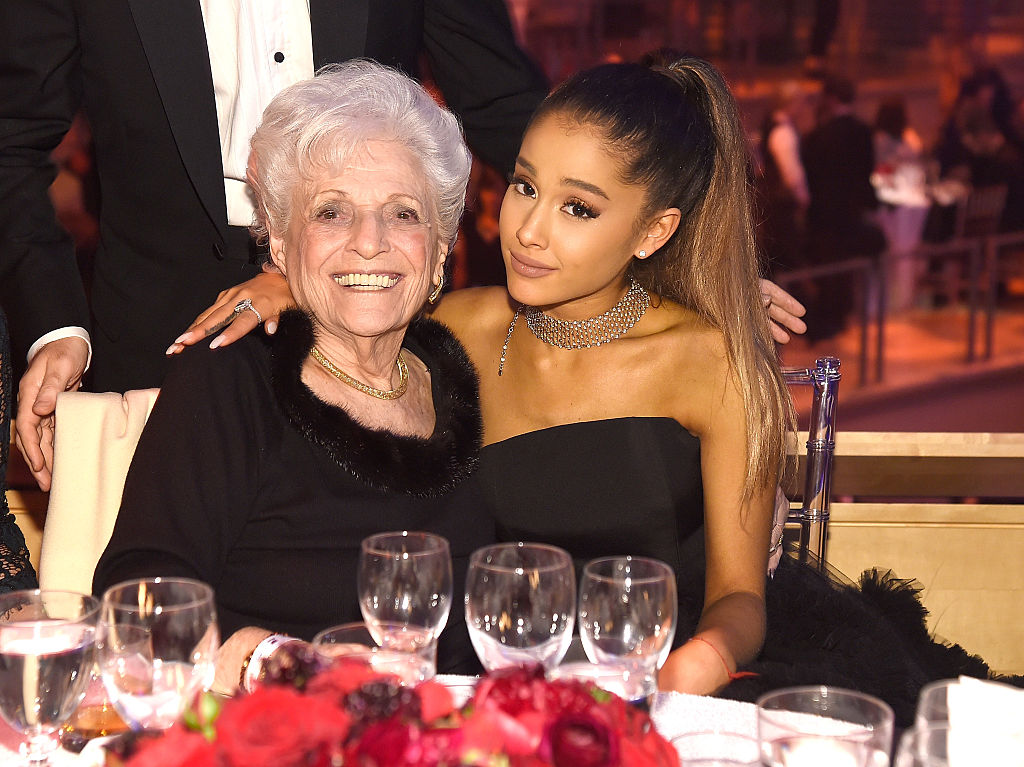
Oprah Winfrey is sounding the alarm about the seriousness of the coronavirus and its disproportionate effect on the African American community.
The television mogul explores the impact of the illness on the black community in the latest installment of her "Oprah Talks COVID-19" series, which is available for free on Apple TV+ starting Tuesday. She spoke with Hoda Kotb about the latest installment on TODAY Tuesday.
"It's not only ravaging our community, but people who have preexisting conditions, which I think people didn't hear that," Winfrey said. "So if you are taking medication for your diabetes, if you're taking medication because of hypertension, if you need an asthma inhaler for asthma, if you have any kind of lung disorder."
Winfrey is also concerned for herself because she revealed in September that she had suffered a serious case of pneumonia that resulted in a trip to the emergency room. She told Hoda that her "lungs never really fully cleared" from that illness.
"So the moment I heard preexisting conditions, I'm like, 'Lock the door, nobody coming in here,''' Winfrey said.
Winfrey has joined fellow film and TV mogul Tyler Perry and other prominent African American voices in spreading the word about the seriousness of the coronavirus. A report released last week by the Centers for Disease Control and Prevention found that severe cases of COVID-19 are disproportionately affecting African Americans.
Entertainment News
Winfrey previously discussed the seriousness of the coronavirus in an episode on Apple TV+ with British actor Idris Elba, who was one of the first celebrities to reveal he had been diagnosed with it last month. Elba also pleaded with people to take the virus seriously by addressing a rumor that it didn't affect African Americans.
"I just felt compelled to tell people that this is very real,'' he said on the show.
"Obviously he was dispelling the rumor, but I didn't even take the rumor seriously,'' Winfrey told Hoda. "This was three weeks ago. Because I thought, 'Who's gonna believe that?'
"Not only is it serious, but people that you don't know, but probably will know, are losing their loved ones."
In addition to the African American doctors and nurses working on the front lines to fight coronavirus, many African Americans have service jobs like grocery workers, bus drivers and pharmacy employees that prevent them from staying home and expose them to the virus.
Jason Hargrove, an African American bus driver from Detroit, died from coronavirus two weeks after posting a video complaining about a passenger who he said refused to cover her mouth while coughing.
"We as a people, as African Americans, have jobs that require us to be at work," Winfrey said. "For so many African Americans, there isn't this ability to telecommute."
Winfrey called for more testing and more protections for them while at work.
"One of the things we're talking about in the special is the need for more testing stations obviously, but more importantly I think it's important for African Americans to understand for ourselves that this is so serious,'' she said. "It's taking us out. It's killing your cousins and your friends and your neighbors. And you need to do whatever you can to protect yourself.
"We certainly understand that the responsibilities and dynamics of some people's lives, particularly African American and brown people, do not allow you to be able to stay at home. All these grocery store workers who are out there without the masks ... that should not be. For now everybody needs to look out for themselves and for their neighbors."
Winfrey has also announced she is donating $10 million to help the African American community combat coronavirus. She is collaborating with black ministers in Nashville, Tennessee, and also working with community leaders in Chicago and Milwaukee.
"I love the idea of getting money directly into the hands of people," she said.
This story first appeared on TODAY.com. More from TODAY:



